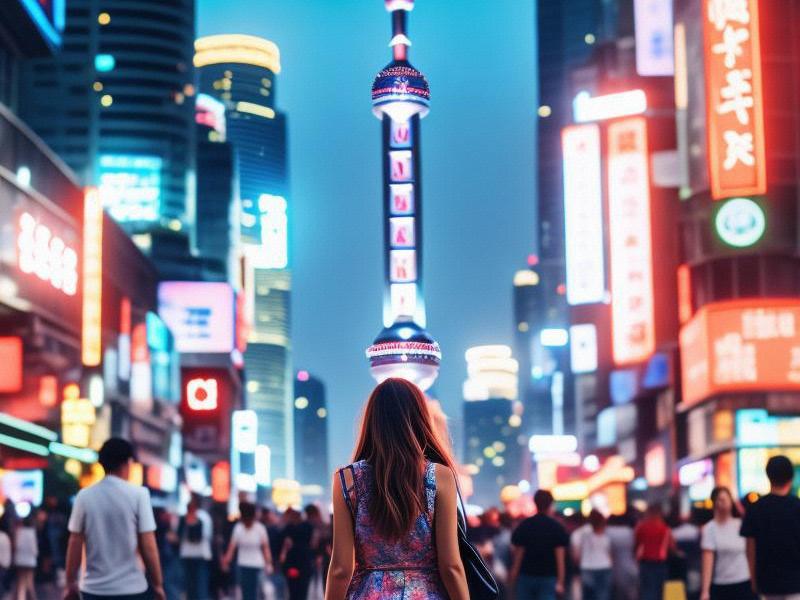This article delves into the multifaceted character of Shanghai, exploring its transformation from a traditional port city to a global economic powerhouse. It highlights the city's vibrant cultural scene, cutting-edge innovation, and its role as a bridge between the East and the West.

Shanghai, a city that has witnessed the ebb and flow of history, stands today as a beacon of modernity and progress in China. Its story is one of transformation, resilience, and aspiration, reflecting the broader narrative of China's rise on the global stage. This article aims to provide an in-depth look at Shanghai, exploring its historical significance, economic prowess, cultural vibrancy, and its role in the global community.
Historically, Shanghai was a small fishing village that gradually grew into a major port city due to its strategic location at the mouth of the Yangtze River. The opening of treaty ports in the 19th century marked the beginning of Shanghai's transformation into a cosmopolitan city. It became a melting pot of cultures, with influences from China, Europe, and beyond, which contributed to its unique character.
The economic rise of Shanghai is nothing short of remarkable. In the late 20th century, the city underwent rapid urbanization and industrialization, emerging as one of the fastest-growing cities in the world. Today, Shanghai is recognized as a global financial hub, housing the world's busiest container port and being home to the Shanghai Stock Exchange, one of the largest stock exchanges globally. The city's skyline is a testament to its economic success, with iconic skyscrapers such as the Oriental Pearl Tower, the Jin Mao Tower, and the Shanghai Tower.
Shanghai's Pudong district is a prime example of the city's economic ambition and innovation. Once a rural area, Pudong has been transformed into a modern financial district, featuring the Lujiazui Finance and Trade Zone, the Shanghai International Airport, and the upcoming Lujiazui Central Park. This area symbolizes the city's commitment to becoming a global leader in finance, technology, and trade.
新夜上海论坛
Culturally, Shanghai is a vibrant city that seamlessly blends tradition with modernity. The Bund, a historic waterfront area, offers a glimpse into the city's colonial past with its array of Art Deco buildings. On the other side of the Huangpu River lies Puxi, the historic heart of Shanghai, where visitors can explore the charming old streets, teahouses, and traditional Chinese architecture.
Shanghai's cultural scene is not limited to its historical sites. The city is home to numerous museums, art galleries, and theaters, such as the Shanghai Museum, which houses an impressive collection of Chinese art, and the Shanghai Grand Theatre, which hosts a wide range of performances. The city also boasts a thriving arts and fashion scene, with events like the Shanghai International Film Festival and the Shanghai Fashion Week attracting global attention.
Education is another area where Shanghai excels. The city is home to some of the best universities in China, including Fudan University and Tongji University, which are renowned for their academic programs and research capabilities. These institutions contribute to the city's intellectual capital and innovation ecosystem.
上海私人品茶
Shanghai's role in the global community is increasingly significant. It is a member of the World Expo Organizing Committee and has hosted major international events such as the 2010 World Expo, which attracted millions of visitors from around the world. The city is also a key player in global trade, with its free trade zone being a model for economic reform and opening up.
Environmental sustainability is a growing concern for Shanghai, as it continues to urbanize and develop. The city has implemented various initiatives to promote green development, such as the construction of eco-friendly buildings, the expansion of public transportation, and the promotion of renewable energy. These efforts aim to ensure that Shanghai remains a livable and sustainable city for future generations.
Shanghai's cuisine is another aspect of its cultural richness. Known as "Hu Cai" or "Shanghai Cuisine," it is characterized by its sweet and savory flavors, with popular dishes including Xiaolongbao (soup dumplings), Shengjianbao (pan-fried dumplings), and braised pork belly. The city's culinary scene is diverse, offering a mix of traditional Chinese dishes and international flavors.
上海娱乐联盟
Tourism is a significant contributor to Shanghai's economy, attracting millions of visitors each year. In addition to its historical and cultural attractions, the city offers a wide range of modern entertainment options, such as shopping malls, theme parks, and nightlife. The Shanghai Disneyland, which opened in 2016, is a popular destination for families and tourists alike.
Shanghai's future looks promising, with the city continuing to evolve and adapt to the changing global landscape. Its commitment to innovation, sustainability, and cultural exchange positions it as a key player in the global community. As Shanghai moves forward, it remains a symbol of China's aspirations and a testament to the potential of urban development.
In conclusion, Shanghai is a city that embodies the spirit of modern China. Its rich history, economic achievements, cultural vibrancy, and global influence make it a fascinating subject of study and admiration. Whether you are interested in history, economics, culture, or innovation, Shanghai offers a wealth of experiences that will leave a lasting impression.